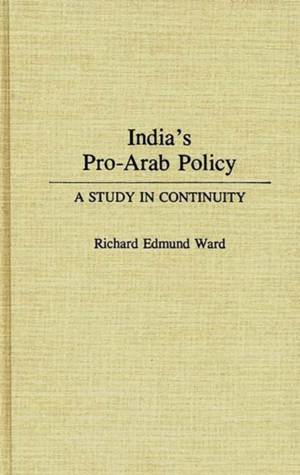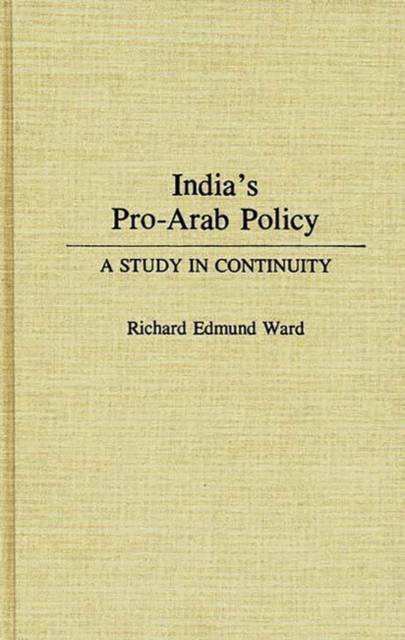
- Afhalen na 1 uur in een winkel met voorraad
- Gratis thuislevering in België vanaf € 30
- Ruim aanbod met 7 miljoen producten
- Afhalen na 1 uur in een winkel met voorraad
- Gratis thuislevering in België vanaf € 30
- Ruim aanbod met 7 miljoen producten
Omschrijving
From the pre-independence days to the conclusion of the recent Persian Gulf War, India has maintained a strong pro-Arab policy. This book traces the economic, political, and psychological factors that have influenced India's pro-Arab policy from the 1920s to today, and how these factors influence the implementation of present policy with the Arab world. The origins and dynamics of India's foreign policy with West Asia are discussed in detail. Although India's relations with her immediate neighbors are the subject of much study, this examination of India and the Arab world provides a multitude of the perplexing issues that have a direct bearing on India's diversity and rise to mid-level power status.
The author finds that India's relations with West Asia are anything but symmetrical as New Delhi continues to give unequivocal support to Arab interests while Arabs generally fail to support India on vital South Asian questions. The continuity of India's pro-Arab policy rests on the relevancy of West Asian oil for industrial development, security interests in the northern frontiers and Indian Ocean, and the sensitivities of India's large Muslim population. Most specifically, India has and will continue to support the creation of a separate Palestinian state. Students and scholars of Indian politics, comparative foreign policy study, Middle East affairs, and international politics will find this study, with its extensive bibliography, a useful and interesting book.Specificaties
Betrokkenen
- Auteur(s):
- Uitgeverij:
Inhoud
- Aantal bladzijden:
- 184
- Taal:
- Engels
- Reeks:
Eigenschappen
- Productcode (EAN):
- 9780275940867
- Verschijningsdatum:
- 24/02/1992
- Uitvoering:
- Hardcover
- Formaat:
- Genaaid
- Afmetingen:
- 146 mm x 226 mm
- Gewicht:
- 367 g

Alleen bij Standaard Boekhandel
Beoordelingen
We publiceren alleen reviews die voldoen aan de voorwaarden voor reviews. Bekijk onze voorwaarden voor reviews.











